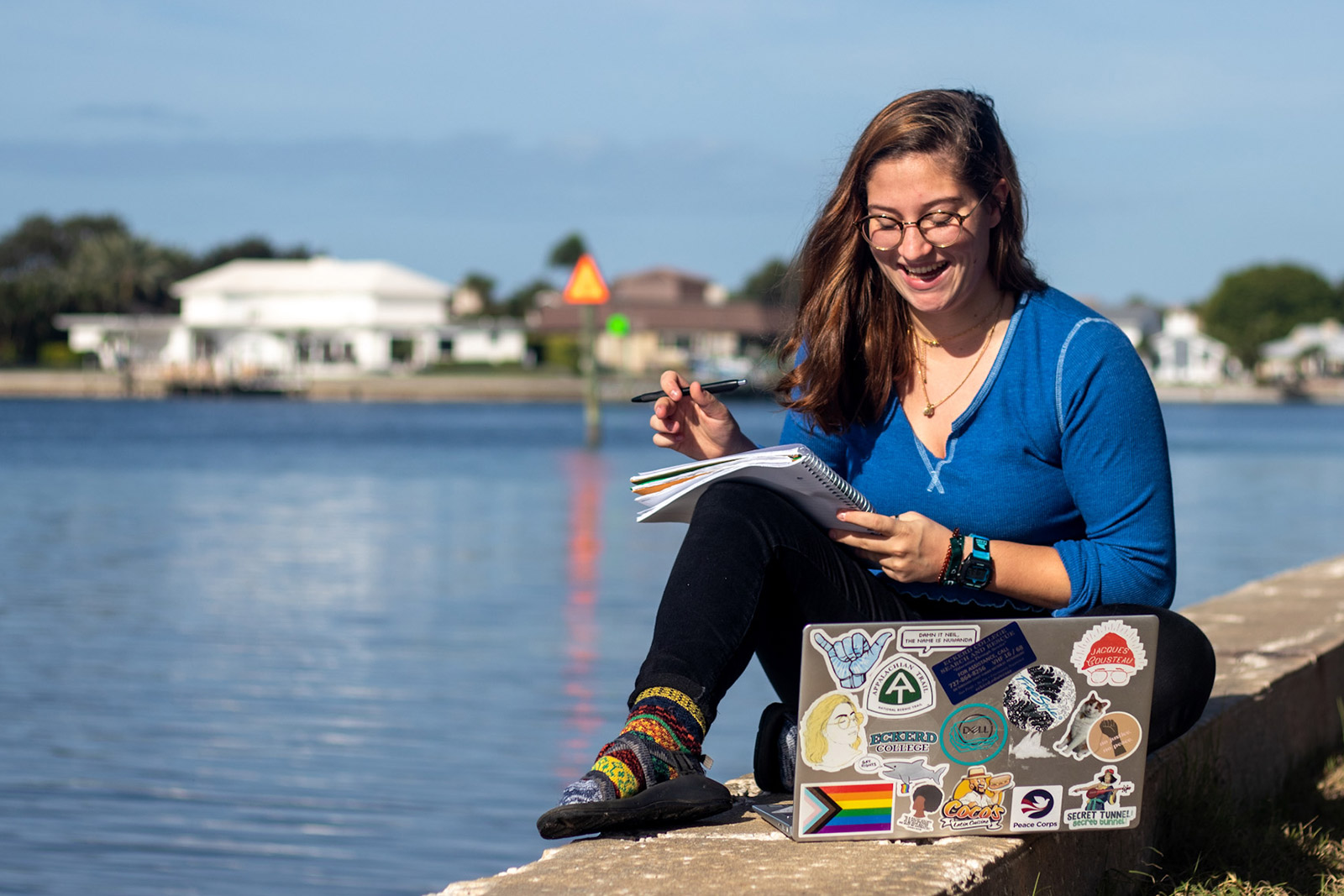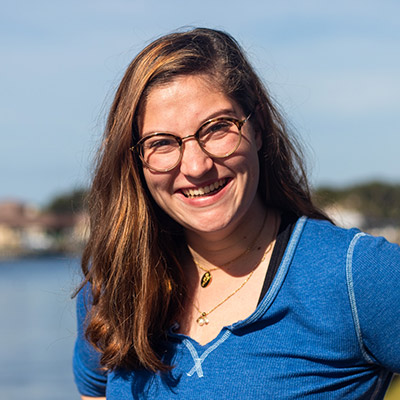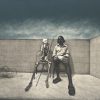
Sophomore Aidan McKinnon is helping Mexico’s first marine mammal conservation center, which aims to rescue, rehabilitate and release stranded marine mammals and sea turtles found in the Pacific, the Gulf of California and Mexico. Photo: Angelique Herring ’19
Aidan McKinnon was cruising through the images on Instagram when she stumbled across it. Three time zones, a different country and a different language away. But it was exactly what she was looking for.
“I was trying to find out what I was going to do with my life,” explains Aidan, an Eckerd College sophomore marine science and Spanish student from Edmond, Oklahoma. “I always loved rescuing and rehabbing animals, and I knew I could do something close to home. But I also knew, deep down, that I wanted to do something really different.”
This would be it.
What Aidan found that day back in late August was Centro de Rescate (Rescue Center), Mexico’s first marine mammal conservation center. A nonprofit organization located in La Paz, a city along the Gulf of California, the Center’s aim is to rescue, rehabilitate and release stranded marine mammals and sea turtles found in the Pacific, the Gulf of California and from all over Mexico, according to the group’s website.
Perfect. But there was still that little matter of getting on board. “I spent a good hour researching them, and then, for whatever reason, I was feeling particularly bold that day, so I emailed them. I told them I was just a random sophomore at this small liberal arts college in Florida. But I loved their program.”

She didn’t think anything would come of it. A short time later, however, one of the Center’s directors emailed back. A Zoom meeting was arranged. She and members of the Center’s senior staff talked for about two hours. (Several staff members are bilingual, as is Aidan.) One of their biggest problems, she was told, was that the Center had been trying to ramp up its community outreach, “but their staff was not well versed in social media,” Aidan says. “So I showed them what I knew.”
The staff was impressed. The Center offered to let Aidan create its childhood education program, and she jumped at the chance. Now she is collecting materials and activities to go out to families with children and other groups. She works as a volunteer, and because the Center is relatively new (2018) and in a country where marine conservation efforts are sometimes seen by the fishing community as an infringement on their livelihood, she has a lot of work to do.
“It’s hard right now trying to help the public understand the actual mission,” she says. “That we’re just trying to take care of these animals and the water they live in. We’re not trying to stop people from doing their work on the water.”
Funding also is a challenge, she says, partly because the Center is still formulating its overall plan. “We’re still laying the ground rules for the organization,” she says. “There is no model. We’re creating the model. But that’s what makes it so exciting.
So far, all of her interactions with the Center have been virtual, something Aidan hopes to change sometime soon. “I would love to go to La Paz and meet everyone and see the facility,” she says. “Right now, COVID is putting a damper on that. I just have to work with the cards I was dealt. I’m fully content to go virtual as long as I have to.”
William Szelistowski, Ph.D., associate professor of biology and marine science and Aidan’s mentor, says it was her initiative that he found remarkable. “She went out and got it on her own,” he says. “I knew she was looking for something. She found it, and she landed the position. That was really impressive. This opportunity is right up her alley.”
And to think, Aidan says, that it all started because she felt a little daring that day in August.
“If you’d told me before August I would end up doing this,” she adds, “I would have said, ‘No way.’ But now, I couldn’t be happier. I have all these ideas … but then I remember it’s going to take time. They [the Center] are the first to be there. We want to make sure everything is done by the book.
“In fact, we’re writing the book.”












